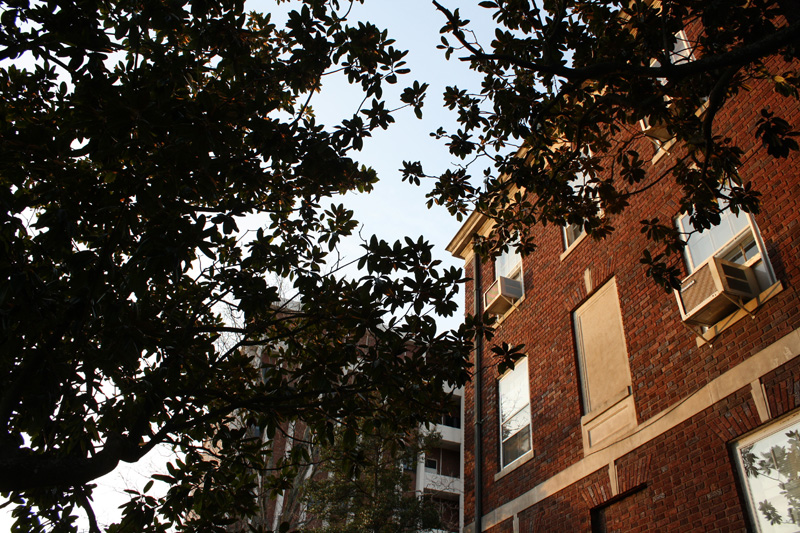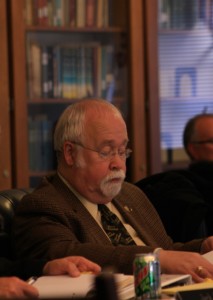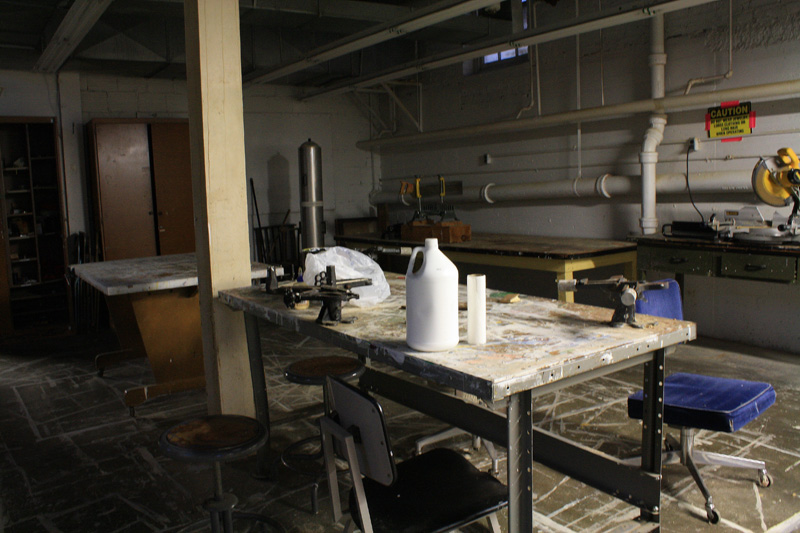
Austin Ramsey
News Editor
The University Board of Regents voted Friday afternoon to raze Ordway Hall, following a year’s worth of concerns surrounding the building’s structural safety and practical use.
Regents passed the motion at their quarterly meeting in Pogue Library, with the stipulation that the demolition cannot take place until June 1, 2012, giving the board enough time to search for renovation donors.
The vote came with only nine regents present – Harry Lee Waterfield II and Jerry Sue Thornton were absent – but a quorum was still met at an 8-1 vote.
Jack Rose, faculty regent and chair of the Buildings and Grounds Committee led discussion in a committee meeting prior to the plenary session in the afternoon.

He and other regents had toured Ordway Hall earlier in the morning, and Rose said the building was in poor shape.
Rose also cited a study by the Kentucky Council on Postsecondary Education in which the CPE hired a consultant to survey 65 percent of Murray State’s buildings. The consultant group found Ordway to violate current safety standards and recommended that it be torn down.
“While I don’t like to see it happen, I agree with the CPE’s recommendation,” he said.
Kim Oatman, chief facilities officer for Facilities Management, gave a presentation to the committee. He said razing the building would cost the University approximately $1.9 million, while renovating would cost $9.4 million.
Deliberation as to board action had been put off for nearly six months, following a spring meeting in which Board Chair Constantine Curris said the debate would need to be cut off and held to a later date.
Newly appointed regent Jenny Sewell said that vote would have to come Friday. She said she had commissioned a renovation and restoration committee in her hometown of Dawson Springs, Ky., giving her firsthand experience in the danger of older buildings.
“I’ve seen the glass blown in the streets,” she said. “I know these buildings can collapse.”
The CPE-consultant study stated the building could be in danger of collapse within five to 10 years, and Oatman said he thought that constituted quick action by the board.
President Randy Dunn agreed with Oatman, saying the building had large amounts of asbestos in it and had collected water leak damage, adding strain to an already weak structure. Following the meeting, Oatman said the building was also likely to come down in the event of an earthquake, due to standards in place at the time it was built.
Regent Sharon Green, who said very little throughout most of the deliberation, spoke up at the end. She said she hoped the University would never again let a building like Ordway degrade for such an extended period of time.

However, Regent Marilyn Buchanon, who voted against demolishing the building, said she was for the almost $10 million renovation project.
In a statement she read to the board and gave to The News following the afternoon meeting, she stateed the 81-year-old building is an important part of the campus, and should not be destroyed.
“This building does not belong to this board nor to this administration,” she stated. “It belongs to the citizens of Kentucky; it belongs to the alumni of this University who have studied here for the past 77 years; and it belongs to the students of the future who will share in the rich traditions we have enjoyed.”
Nearing the vote, she became emotional.
“(Ordway) is a part of us all, and when we destroy it, we destroy a part of ourselves,” she said.
Curris said he understood the arguments made by each of the regents, but he added that it was not in the University’s best interest to preserve a building that would cost that much to restore.
Contact Ramsey